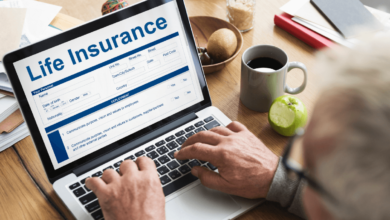What Are The Financial Skills That The Teens Should Know?

You might still be a teen living at home. But as you get closer to being an adult, it’s crucial to ensure you have the financial knowledge you’ll need to manage your own money wisely and avoid making costly mistakes. Before learning these lessons the hard way, you should look for tactics and resources that will enhance your ability to manage your money as you achieve financial independence, such as working your first job and getting ready to live independently. To assist you in quickening your learning curve and approaching adulthood with a sound grasp of money, here are money suggestions for teens & tips for teenage banking.
- Budgeting basics:
One of the most crucial financial skills for young adults is creating and sticking to a budget, which is the cornerstone of financial wellness at every age. A budget is only a tool for tracking your income, expenses, and where your money goes. And with so many teenager banking apps available that take care of the job for you, budgeting is simpler than ever.
- Identifying needs versus wants:
It is something that young people should ideally comprehend before they independently venture out for the first time. It’s a straightforward idea that can be complicated, just like budgeting. At their most fundamental level, the items that enable us to maintain daily life are requirements. No matter what we may believe, everything else is a want. Wants must wait when money is scarce.
- Open checking and savings accounts while you are still a resident of your home:
Set up accounts with a nearby bank or sign up for a teenager bank account online before you move out. Create bank and savings accounts, and become familiar with their fundamental operations, including checking, debiting accounts, and investigating online bill payments and other valuable services. Opening checking and savings accounts will help you build a relationship with a nearby financial institution and familiarize yourself with two of the most crucial financial instruments you will ever use.
- Learn The Best Ways to Build a Good Credit History:
The best time for young folks to start building good credit is now to achieve their future objectives. Unfortunately, errors made today, like accumulating excessive credit card debt, can lead them down the wrong path in the future. The most crucial lesson to learn is the necessity of paying all bills consistently and on time.
- Realizing that nothing is certain:
Just because you have a job one day doesn’t necessarily guarantee you will have one the next. That is one of the more brutal facts of life, but it’s crucial to comprehend. Other examples include the best buddy you choose to live with and never paying their share of the rent on time. Young people should be prepared for these realities to decrease the impact of tragic events.
- Discover the difference between good and bad debts:
Understanding how to evaluate debt is a crucial component of financial literacy for teenagers. Any debt can harm your finances. But there are times when it is vital to choose to take on “good” debt.
- Student loan debt – Many people view student debts as “positive debt” since they might lead to more lucrative careers. Before selecting a specific degree, look into your income potential. Even if you believe your degree is worthwhile, look into scholarships and part-time jobs while you’re a student.
- Home loan debt – A further illustration of what is seen as “good debt” is a mortgage. In the long run, purchasing a home can be a wise investment. But you shouldn’t buy a house out of your financial range and end up being “house poor.” If not, this would be a terrible debt!



